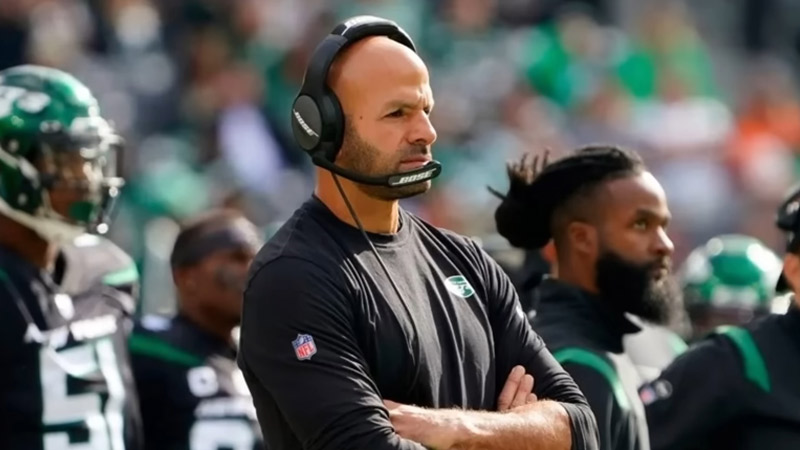In the high-stakes world of the National Football League (NFL), success is paramount, and head coaches play a pivotal role in their team’s pursuit of glory. But have you ever wondered how much these strategic masterminds earn for their leadership on the gridiron?
Join us in this deep dive into the financial playbook of NFL head coaches, where we’ll uncover the eye-popping figures behind their salaries and compensation packages.
From base salaries to performance-based incentives and the influence of market forces, we’ll explore the factors that determine just how much NFL head coaches make.
Whether you’re a die-hard football fan or simply curious about the economics of professional sports, this blog post will provide insights into the lucrative world of coaching at the highest level of American football.
The Basics of NFL Coaching Contracts
NFL coaching contracts are complex agreements that outline the terms and conditions of employment for head coaches and assistant coaches in the National Football League.
These contracts govern various aspects of a coach’s tenure with a team, including compensation, job responsibilities, length of the contract, and more.
Here are the basics of NFL coaching contracts:
Length of Contract
NFL coaching contracts typically have a set duration, often ranging from one to five years, although longer contracts are not unheard of for successful head coaches.
The length of the contract is negotiated between the coach and the team’s ownership or front office.
Compensation
Compensation for NFL coaches can vary widely depending on experience, success, and job title. Head coaches generally earn significantly more than assistant coaches.
Compensation may include a base salary, performance bonuses, and incentives tied to the team’s success, such as playoff appearances or Super Bowl victories.
Guaranteed vs. Non-Guaranteed Contracts
Head coaching contracts often include guaranteed money, meaning that the coach is entitled to receive the full amount of their contract even if they are fired before the contract’s expiration.
Assistant coaching contracts are typically not guaranteed, which means they may only receive compensation for the duration of their employment.
Job Responsibilities
The contract outlines the specific job responsibilities of the coach, including the scope of their authority, play-calling duties (for offensive and defensive coordinators), and other coaching-related tasks.
The head coach is typically responsible for overall team management and strategic decisions.
Assistant Coaches
Head coaches have the authority to hire their assistant coaches, and these assistant coaches may have their own individual contracts with the team.
The contracts for assistant coaches specify their roles, salaries, and contract lengths.
Termination Clauses
Coaching contracts often include provisions that outline the circumstances under which a coach can be terminated with or without cause. Termination “with cause” typically involves a breach of contract, such as illegal activity or insubordination.
Termination “without cause” may occur if the team decides to make a coaching change for other reasons, such as poor performance.
Buyout Clauses
In the event of a coach’s termination without cause, the contract may include a buyout clause. This stipulates that the team must pay the coach a specified amount as compensation for the remaining years of the contract.
Extensions and Renegotiations
Successful coaches may have their contracts extended or renegotiated to reflect their contributions and the market value for coaching talent.
Confidentiality and Non-Compete Clauses
Coaches are often bound by confidentiality agreements that prevent them from disclosing team strategies or sensitive information to other teams. Non-compete clauses may also restrict a coach’s ability to work for other NFL teams during or immediately after their contract’s expiration.
Dispute Resolution
Contracts typically include provisions for dispute resolution, such as arbitration, in the event of conflicts between the coach and the team.
NFL coaching contracts are complex legal documents that require negotiation and careful consideration by both coaches and teams. They play a critical role in shaping the relationships between coaches and their respective franchises.
How Much Does An NFL Head Coach Make?
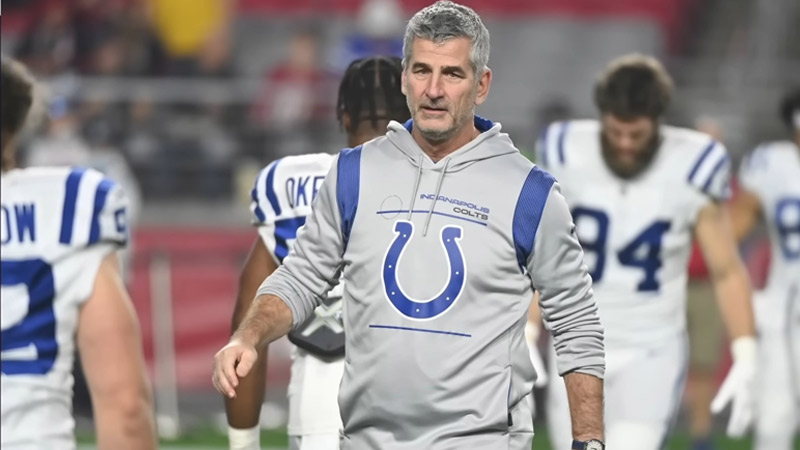
As of 2023, the average NFL head coach earns approximately $6.6 million annually. This figure can vary significantly depending on the coach’s experience, track record, and the specific team’s financial resources.
Established and successful head coaches often command higher salaries, sometimes exceeding $10 million per year, while newer or less experienced head coaches may earn less.
In contrast, the average yearly salary of other assistant coaches on an NFL team is approximately $5.5 million. Assistant coaches’ salaries can also vary widely based on factors such as their coaching roles, experience, and the team’s budget.
Key coaching positions, such as offensive and defensive coordinators, may earn more than position-specific coaches or lower-ranking assistants. It’s important to note that these figures are averages, and individual coaching contracts can deviate significantly from the norm.
High-profile head coaches with successful track records may negotiate substantial compensation packages that include performance incentives, bonuses, and other perks.
Coaching salaries in the NFL reflect the competitive nature of the league and the importance of experienced leadership in a team’s success.
Base Salaries and Compensation Packages of Highest-Paid NFL Head Coaches
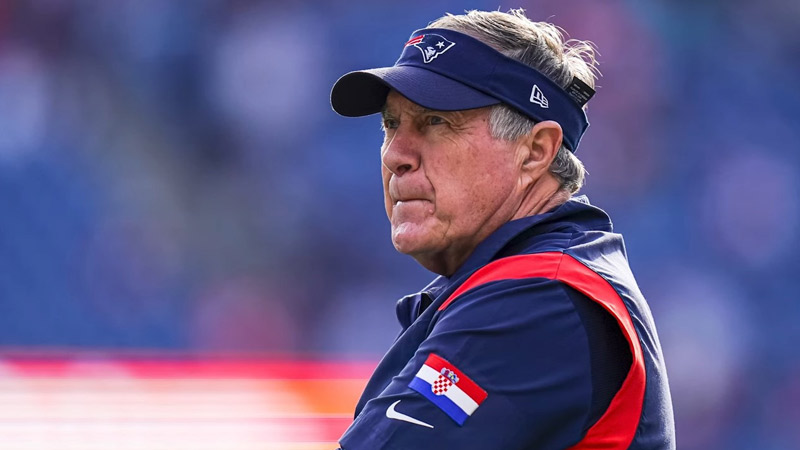
NFL head coaches’ salaries and compensation packages can vary widely based on factors such as experience, success, market demand, and the financial resources of the team’s ownership.
While some head coaches receive substantial base salaries, others may earn additional income through performance-based incentives, bonuses, and other perks.
Here’s an overview of base salaries and compensation packages for NFL head coaches:
Base Salaries
NFL head coaches typically receive a base salary, which forms the foundation of their compensation package.
Base salaries can range from a few million dollars to over $10 million per year, depending on the coach’s experience and track record. High-profile coaches with successful histories often command the highest base salaries.
Performance-Based Incentives
Many head coaching contracts include performance-based incentives designed to reward success. These incentives may be tied to achieving certain milestones, such as making the playoffs, winning division titles, or reaching the Super Bowl.
If the coach achieves these goals, they receive additional compensation on top of their base salary.
Bonuses
Head coaches can earn bonuses for various achievements, including winning the Super Bowl, being named Coach of the Year, or achieving specific win-loss records.
Super Bowl bonuses can be particularly substantial, often totaling several million dollars for the winning coach.
Guaranteed Money
Some head coaching contracts include guaranteed money, which ensures that the coach receives their full salary even if they are terminated before the contract’s expiration.
Guaranteed money can provide job security for coaches and maybe a significant portion of their overall compensation package.
Contract Length
The length of the coaching contract can impact compensation. Longer contracts may offer greater job security and allow coaches to negotiate higher base salaries.
However, shorter contracts may provide more flexibility for both the coach and the team.
Perks and Benefits
NFL head coaches may receive various perks and benefits as part of their compensation packages. These can include items such as housing allowances, transportation allowances, health insurance, and access to team facilities.
Market Factors
The location of the team and the cost of living in that area can influence compensation. Teams in larger, more expensive cities may offer higher salaries to attract and retain coaches.
Franchise Resources
The financial resources of the team’s ownership or management can play a significant role in determining coaching salaries. Wealthier teams may be willing to invest more in coaching talent.
It’s important to note that coaching salaries in the NFL can change rapidly, and the figures mentioned here are subject to change based on market dynamics and individual negotiations.
High-profile coaching hires and coaching changes can lead to significant fluctuations in compensation within the league.
Contract Extensions and Salary Negotiations of Highest-Paid NFL Head Coaches
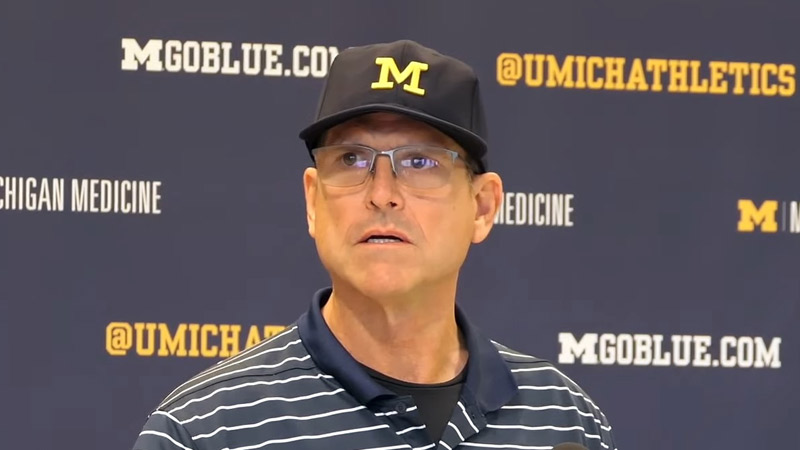
Contract extensions and salary negotiations for the highest-paid NFL head coaches are significant events in the league, reflecting the coaches’ success and the teams’ commitment to retaining top-tier talent.
Here’s an overview of how contract extensions and salary negotiations typically work for these coaches:
Demonstrated Success
Coaches who have achieved consistent success, including playoff appearances and Super Bowl wins, are often in the best position to negotiate contract extensions and salary increases. Their track record of success makes them highly valuable to their teams.
Contract Expiration
A coach’s contract typically has an expiration date, and negotiations for an extension often begin in the year leading up to that date. Teams generally aim to secure their head coach’s services well before the current contract expires to maintain stability.
Performance Evaluation
Before entering negotiations, team ownership and management assess the coach’s performance, taking into account factors such as win-loss records, playoff performance, and player development.
Coaches are evaluated not only on their on-field success but also on their leadership and ability to manage the team.
Salary Benchmarking
Teams may conduct benchmarking research to compare their coach’s salary to those of other coaches with similar levels of success and experience. This helps determine whether the coach’s compensation is competitive within the league.
Negotiation Process
Contract negotiations are typically handled by the coach’s agent and the team’s front office, including the general manager and team owner. Negotiations may involve discussions about the coach’s base salary, performance-based incentives, contract length, and any guaranteed money.
Guarantees
Coaches may seek guarantees in their contracts, ensuring that they receive a certain portion of their salary even if they are terminated before the contract’s expiration. Guarantees provide job security and financial stability for coaches.
Length of Extension
The length of the contract extension can vary, with some coaches signing multi-year extensions to maintain stability, while others may prefer shorter terms to retain flexibility. Contract extensions and salary negotiations for the highest-paid NFL head coaches are complex and multifaceted.
They involve assessing performance, benchmarking against industry standards, and carefully crafting agreements that balance financial compensation, incentives, and job security.
Successful head coaches with a track record of winning often have considerable leverage in these negotiations, and teams are willing to invest in their leadership to maintain competitiveness in the league.
Highest-Paid NFL Head Coaches
Here are the 4 highest paid NFL Head coaches of all time:
Bill Belichick – New England Patriots ($20 million)
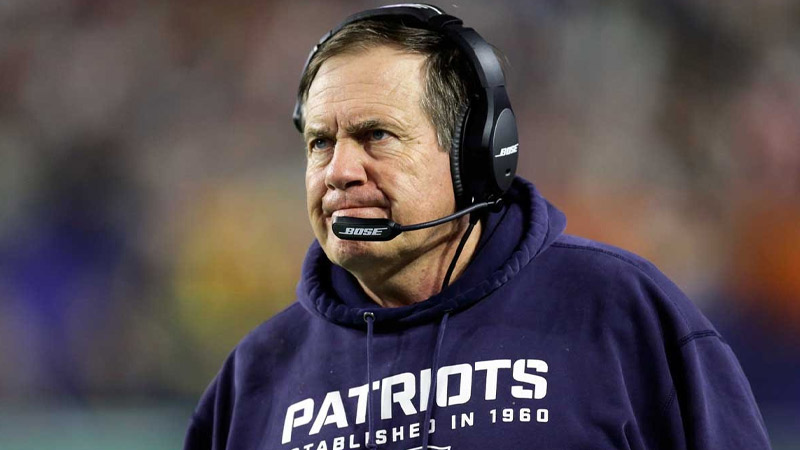
Bill Belichick is widely regarded as one of the greatest coaches in NFL history. He has been the head coach of the New England Patriots since 2000 and has overseen one of the most successful eras in the franchise’s history.
His annual salary of $20 million reflects his unmatched track record, including multiple Super Bowl victories and numerous division titles. Belichick is known for his strategic brilliance, defensive expertise, and ability to adapt to different opponents.
His coaching style and meticulous attention to detail have made him a highly sought-after coach, commanding a top salary in the league.
Sean Payton – Denver Broncos ($18 million)
Sean Payton, the former head coach of the New Orleans Saints, joined the Denver Broncos with an annual salary of $18 million. Payton is celebrated for leading the Saints to their first Super Bowl victory in 2009.
His offensive innovations and ability to develop quarterbacks have made him a valuable commodity in the NFL coaching world.
With his new role in Denver, Payton brings a wealth of experience and a reputation for offensive prowess, making him one of the highest-paid coaches in the league.
Pete Carroll – Seattle Seahawks ($15 million)
Pete Carroll, the head coach of the Seattle Seahawks, has consistently been among the league’s highest-paid coaches.
Carroll’s success with the Seahawks includes a Super Bowl win in the 2013 season. His coaching style is known for emphasizing competition, strong player relationships, and a focus on defense.
Carroll’s annual salary of $15 million reflects his long-standing impact on the Seahawks and his reputation as a respected leader in the NFL coaching fraternity.
Sean McVay – Los Angeles Rams ($15 million)
Sean McVay, the head coach of the Los Angeles Rams, is one of the NFL’s youngest and most promising coaching talents. Despite his relative youth, McVay has quickly risen through the ranks and led the Rams to a Super Bowl appearance in the 2018 season.
His innovative offensive schemes and ability to maximize the potential of his players have earned him a salary of $15 million.
McVay’s coaching style is characterized by adaptability and a deep understanding of offensive strategy, making him a sought-after coach and one of the highest-paid in the league.
These coaches’ salaries reflect not only their past successes but also the value they bring to their respective teams.
Their leadership, strategic acumen, and ability to motivate and develop players have made them some of the most influential figures in the NFL coaching landscape.
FAQs
How much does the average NFL head coach earn annually?
The average annual salary for an NFL head coach is approximately $6.6 million as of 2023. However, this figure can vary widely based on experience, success, and the financial resources of the team’s ownership.
Do head coaches receive bonuses or incentives in addition to their base salary?
Yes, many head coaches receive performance-based incentives and bonuses.
These can be tied to achieving milestones like playoff appearances, division titles, or Super Bowl victories, allowing coaches to earn extra income based on their team’s success.
Are head coaching contracts typically guaranteed?
Yes, some head coaching contracts include guaranteed money, ensuring coaches receive their full salary even if they are terminated before the contract’s expiration.
Guaranteed money provides job security and financial stability for coaches.
What factors influence a head coach’s salary?
A head coach’s salary is influenced by factors such as experience, track record, market demand for coaching talent, and the team’s financial resources.
Successful coaches with a history of winning often command higher salaries.
Can head coaching salaries change during a coach’s tenure with a team?
Yes, head coaching salaries can change through contract extensions and renegotiations.
Coaches who achieve success or receive offers from other teams may negotiate higher salaries and improved contract terms during their tenure with a team.
Wrapping Up
In the game of American football, the men at the helm, the NFL head coaches, are not just leaders on the field but also among the highest earners in the sports industry.
As we conclude our exploration of their salaries and compensation packages, it becomes clear that success and experience are significant drivers of income in the world of NFL coaching.
With multi-million dollar contracts, performance incentives, and guarantees, head coaches are rewarded for their ability to navigate the complexities of the league and guide their teams to victory.
These financial figures not only reflect the value placed on top coaching talent but also shed light on the competitive nature of the NFL, where every dollar invested in coaching is an investment in the pursuit of the ultimate goal: hoisting the Lombardi Trophy and achieving gridiron glory.

